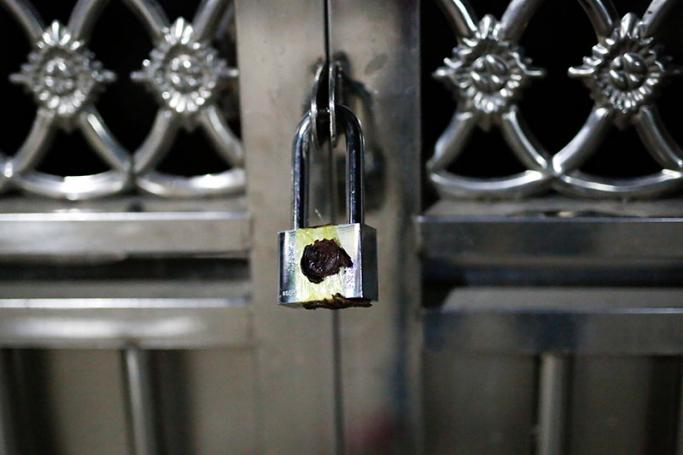The Myanmar government should immediately reopen two madrasas, or Islamic religious schools, that local authorities sealed off in Yangon on April 28, 2017, Human Rights Watch (HRW) said today in a statement. The government should publicly commit to protecting the right to freedom of religion for all religious communities in Myanmar, including in worship, observance, practice, and teaching, the organisation said.
According to the statement, in late April, a mob of about 50 to 100 Buddhist ultranationalists put pressure on local officials and police in Rangoon’s Thaketa Township to close the two madrasas. The ultranationalists alleged Muslim community members were using the schools to conduct prayers, which they claimed violated an agreement signed by the schools’ leaders last year. The authorities carried out the mob’s demand and have not reopened the schools, denying a reported several hundred students their education.
“Burmese local officials’ craven capitulation to mob demands to shutter two Muslim schools is the latest government failure to protect Burma’s religious minorities,” said Phil Robertson, deputy Asia director at Human Rights Watch. “The government should immediately reverse these closures, end restrictions on the practice of minority religions, and prosecute Buddhist ultranationalists who break the law in the name of religion.”
Claims by Buddhist ultranationalist groups that the shutdowns were lawful because madrasa leaders had signed a document in October 2015 agreeing not use the schools for prayer provide no justification for their closure, Human Rights Watch said. Even if the agreement was not signed under duress, as evidence suggests, it would be an infringement on the Muslim community’s basic rights to religious freedom. The media reported that Buddhist ultranationalists had previously pressured local officials about whether prayers were being said at the two madrasas.
Tin Myo Aung, 45, a security officer at one of the schools, told Human Rights Watch that a crowd of Buddhist ultranationalists appeared at about 4 p.m. outside the school he was guarding. As they grew more agitated he became worried, before the police arrived. At about 6 p.m. the police padlocked the schools to prevent anyone from entering. An altercation between some Buddhist ultranationalists and a reporter from the Associated Press did not escalate. A school committee member told Human Rights Watch that the authorities said the closure was temporary but gave no timeline for the schools’ reopening.
Human Rights Watch visited Thaketa Township on April 29 and observed dozens of police outside both schools. Just after 11 a.m., local authorities and school representatives, along with individuals identified by local residents as Buddhist ultranationalists, entered the schools to examine them. After they emerged, the officials replaced the locks and put yellow tape and barricades around the entrances. Police outside the schools have since refused to allow Muslim community members, including those whose children attend the schools, to enter.
The school committee member told Human Rights Watch that the schools immediately sent a letter to the Rangoon Region chief minister’s office requesting to have the schools reopened. However, so far they have not received a response. Tin Myo Aung said that several hundred children between the ages of 5 and 12 ordinarily attend the two schools. The closures deny children their right to an education, Human Rights Watch said.
WunnaShwe, 54, joint secretary general of the Islamic Religious Affairs Council, said that closures like this are not uncommon in Myanmar, and that they also affect other minority religious groups, such as Christians.
“According to our experience, madrasas that are sealed or closed almost never open again,” WunnaShwe said. He added that since violence in Taungoo, Bago Region, in 2001 caused the government to seal ten mosques, only four have since been reopened.
Human Rights Watch repeatedly telephoned the Yangon police information committee, but no one was willing to comment on the incident.
“Burmese authorities and police have repeatedly shown they are unwilling to confront Buddhist ultranationalists inciting violence against Muslims and other religious minorities,” Robertson said. “In doing so the government has failed to protect the rights to freedom of religion and education and provide basic security to all of its people. Burma’s leaders can’t sit back and wait for the next round of violence against a minority group; they need to take proactive steps to address religious tensions and disputes so that all can practice their religion peacefully and safely.”
You are viewing the old site.
Please update your bookmark to https://eng.mizzima.com.
Mizzima Weekly Magazine Issue...
14 December 2023
Spring Revolution Daily News f...
13 December 2023
New UK Burma sanctions welcome...
13 December 2023
Spring Revolution Daily News f...
12 December 2023
Spring Revolution Daily News f...
11 December 2023
Spring Revolution Daily News f...
08 December 2023
Spring Revolution Daily News f...
07 December 2023
Diaspora journalists increasin...
07 December 2023
School teachers to help at polling stations in Myeik












